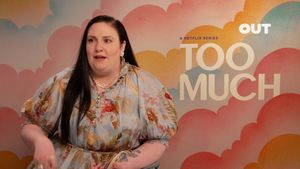Treatment GuideJust DiagnosedSex & DatingAfrican AmericanStigmaAsk the HIV DocPrEP En EspañolNewsVoicesPrint IssueVideoOut 100
CONTACTCAREER OPPORTUNITIESADVERTISE WITH USPRIVACY POLICYPRIVACY PREFERENCESTERMS OF USELEGAL NOTICE
© 2025 Pride Publishing Inc.
All Rights reserved
All Rights reserved
Scroll To Top
By continuing to use our site, you agree to our Privacy Policy and Terms of Use.
Shame is toxic. And it's frequently unnoticed. I find that in many people -- friends, clients, myself -- shame acts as a pervasive force, distorting reality and creating a perception that one is unworthy, dirty, or flawed. And it feels so real that it can be difficult to challenge. To this extent it is similar to depression, whose dark and gloomy feelings don't feel like feelings at all but instead an accurate portrayal of how one's life truly is. Many people don't even notice that they are depressed, as they have always felt that way. It is a steady state; an experience of one's self that has always been there. It can be hard to notice the obvious. The same is true with shame, where the judge and jury is one's self, looking inward, a harsh critic preventing a person from being human. When I was an early adolescent, shame burst onto the scene with growing realization that I was attracted to other boys. It was oppressive, operating like an all-seeing and punishing Santa Claus who saw me when I was sleeping, knew when I was awake, and knew if I'd been bad or good -- and would react with painful disapproval when I acted on or even thought of things that ran contrary to the community where I was raised. I am only now beginning to realize the cost of such shame as I see its impact in the details of my life, like my fear of confrontation or my difficulty in being honest about something that could put me in a 'bad light.' I see it in the guilt I experience during rifts in relationships. I feel it when I make a mistake. Most broadly, I see it when I hide -- in those times when I isolate myself on weekends or pretend to others that I am fine when I am definitely not. Or when I hide from myself. Shame is an issue for many of us who live with HIV. Most often it takes the form of the harsh and harmful language HIVers direct toward themselves: 'I should have known better. It's my own stupid fault. I could kick myself. I deserve this.' That isn't exactly the best self-talk for someone living with a chronic and serious illness. Lately, I have been wondering about the genesis of such shame -- is it something that is brought on by contracting the virus? Is there something inherent about having HIV that brings shame with it? Is the societal stigma surrounding HIV and AIDS so pronounced that such shame is unavoidable? There is some truth in all of those notions. But I think there is something more. I wonder if many of those who contract HIV have a preexisting condition of shame. For myself, I wonder if the shame that has been a constant and unwelcome companion for such a long time fueled my behavior in the past and guides my behavior in the present. So what exactly should a person do with such shame -- to rid oneself of that constant and unwelcome companion? How is it dealt with? Worked through? Conquered? I've realized that forming, building, and maintaining relationships tend to be the primary mode through which my shame is addressed. After all, shame is hatched in relationships -- it seems logical that relationships are needed to reverse it. This requires courage, of course, because there is an ever-present fear of being shamed again. However, I have found that when I find the courage to accept love from others, my shame, while still present, recedes a bit. And then I am better able to embrace who I am. Fransen is a licensed clinical social worker who is in private therapy practice in Chicago. He welcomes feedback at stillpoint4003@yahoo.com.
From our Sponsors
Most Popular
BREAKING NEWS: Trump admin moves to end federal HIV prevention programs
March 18 2025 6:10 PM
Grindr is reminding us why jockstraps are so sexy and iconic
May 02 2025 5:36 PM
Trump's orders prompt CDC to erase HIV resources
January 31 2025 5:29 PM
Celebrating Black History Month with our annual African American issue
February 01 2025 3:28 PM
Tyler TerMeer vows to continue to fight for health care for all
January 28 2025 3:00 PM
Discover the power of Wellness in your life
March 26 2025 12:41 PM
Plus: Featured Video
Latest Stories
The Talk: Starting the conversation
July 25 2025 4:47 PM
BREAKING: Supreme Court rules to save free access to preventive care, including PrEP
June 27 2025 10:32 AM
HRC holds 'die-in' to protest Trump health care cuts
April 28 2025 2:11 PM
Season 4 of The Switch on resilience & radical self-love returns this spring
March 26 2025 12:20 PM
Lexi Love comes out as HIV+ after Trump deletes federal resources
January 23 2025 11:23 AM
A camp for HIV-positive kids is for sale. Here's why its founder is celebrating
January 02 2025 12:21 PM
Thanks to U=U, HIV-positive people can live long, happy, healthy lives
July 25 2025 2:37 PM
“I felt like a butterfly”: Niko Flowers on reclaiming life with HIV
July 23 2025 12:22 PM
1985: the year the AIDS crisis finally broke through the silence
June 26 2025 11:24 AM
Trump admin guts $258 million in funding for HIV vaccine research
June 03 2025 3:47 PM
Two right-wing Supreme Court justices signal they may uphold access to PrEP and more
April 21 2025 4:10 PM
Broadway's best raise over $1 million for LGBTQ+ and HIV causes
April 03 2025 7:15 PM
Jess King is here to help you live your happiest, healthiest life yet
March 24 2025 4:35 PM
Dancer. Healer. Survivor. DéShaun Armbrister is all of the above
July 02 2025 8:23 PM
VIDEO: A man living with HIV discusses his journey to fatherhood
June 10 2025 4:58 PM
500,000 Children at Risk: PEPFAR Funding Crisis
April 08 2025 3:51 PM
The Talk Season 5 premieres this spring with HIV guidance for the newly diagnosed
March 26 2025 1:00 PM
Gerald Garth is keeping people of color happy and healthy through trying times
March 11 2025 3:38 PM
Plus nominated for 2025 GLAAD Media Award
January 22 2025 12:42 PM
Trending stories
Recommended Stories for You













































































